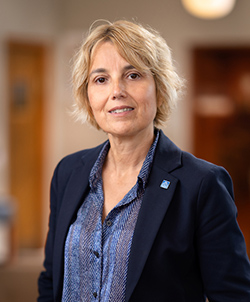As we approach 2025, the new research and innovation bill presents both promising opportunities and notable challenges for Swedish universities. Central to the bill are initiatives to establish new Strategic Research Areas (SFOs), addressing societal and technological challenges in fields such as quantum technology, life sciences, and materials science. These align closely with the strengths of SCI School, positioning KTH to play a pivotal role in advancing these fields. However, success will require strategic preparation to secure funding and build collaborative, high-impact research environments.
The bill emphasizes the critical role of free research as the foundation of scientific progress, with significant investments, including 450 million SEK for pioneering research starting in 2026 and 300 million SEK for Excellence Centers. These initiatives align with SCI’s commitment to foundational and theoretical research. However, limited increases in direct university funding raise concerns about long-term stability and infrastructure support, necessitating a careful balance between targeted initiatives and advocating for core funding.
Strategic recruitment offers another key opportunity, with 245 million SEK annually by 2028 dedicated by VR to tenure-track assistant professorships. This provides a pathway for SCI School to attract exceptional early-career researchers, though it demands transparent and strategic alignment to strengthen our research capabilities effectively.
Energy research receives notable support, with substantial funding allocated through the Energy Research Bill, particularly for nuclear energy. SCI School’s expertise in nuclear safety and innovation places it at the forefront of this critical field. Similarly, excellence clusters focusing on quantum technology, AI, and advanced energy systems—supported by funding of up to 40 million SEK annually—represent transformative opportunities for SCI. Quantum technology funding alone will grow to 100 million SEK by 2028. SCI School is well-positioned to contribute significantly to Sweden’s national quantum strategy, but achieving this will require dedicated efforts to secure funding and strengthen our leadership in this rapidly advancing field.
Additional investments, such as support for NORDITA, strengthen Sweden’s position as a global leader in theoretical physics, enhancing SCI’s impact in international collaboration and cutting-edge research.
Preparing for the Challenges Ahead
- To fully capitalize on these opportunities, SCI School must focus on several key priorities:
- Preparing competitive applications for new SFOs and targeted funding calls.
- Aligning recruitment efforts with long-term strategic goals while ensuring transparency and fairness.
- Strengthening collaborations with NORDITA, SciLifeLab, and industry partners to enhance impact.
- Advocating for increased direct funding to ensure stable and flexible support for core operations.
While the limited increase in direct university funding remains a concern, proactive and coordinated efforts will be essential to maintaining excellence and securing growth in this dynamic environment.
As we look ahead to 2025, SCI School must approach these opportunities with careful planning, collaborative efforts, and strategic vision to advance our research and innovation agenda. Addressing these challenges will require a coordinated and thoughtful approach to ensure sustainable growth and academic excellence.
Wishing everyone a productive and inspiring start to the new year.


No comments yet. Be the first to comment!